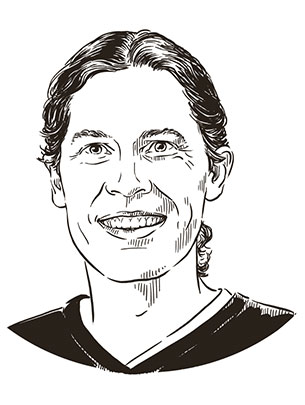Should complementary medicine be the subject of research just like other disciplines,
Text: Philipp Treutlein
How should university research approach complementary medicine? A debate between a pharmacist and a physician.
Complementary medicine covers a wide range, from traditional herbalism to treatments rooted in spiritual beliefs or philosophies of life. It claims to “complement” academic medicine, which is defined as scientific medicine and demands standards for the effectiveness of a therapy. According to conventional medicine, diseases and their treatments are based on physical, chemical, biological and psychological processes.
There are obviously diseases that we do not (yet) understand at a molecular level. For that reason, conventional medicine does also use drugs whose mechanism of action is not yet known. The success of the therapy justifies their use. However, the essential precondition is that this success can be empirically demonstrated. This is done in clinical trials that comply with the accepted standards of the scientific community. Any type of therapy must meet this requirement for empirical evidence of its effectiveness, whether it is regarded as “complementary” or not. It is the task of medical research to conduct and evaluate these studies and this must be done independently of politics, business or interest groups.
For scientific research, there is also the question of the mechanism of action of a therapy. (Bio)medical and pharmaceutical science attempts to discover the molecular causes of diseases and understand the mechanisms of action of drugs, with the aim of improving existing drug treatments and developing new ones. This also applies to fields of complementary medicine such as phytopharmacy, in which plant extracts are examined for their pharmaceutical effectiveness. It is irrelevant whether they originate from traditional folk medicine or were discovered via a different route. Provided molecules produce a reproducible effect, which may be enzyme activities in the test tube, cell cultures and animal models, or human probands, the scientific approach makes sense and can provide new insights.
This approach is, however, obviously not applicable if a preparation no longer contains any molecules of the active substance, as in the strong dilutions in homeopathy. Apart from the fact that no convincing proof of effectiveness, beyond the placebo effect, has been produced to date, attempts to explain the claimed effects on another level of physics have also all failed so far. The suggestion, too, that the solvent water could keep a “memory” of the molecules diluted out, is without any known physical foundation. In the past, phenomena have been disputed by scientists only to be proved later. Yet, such paradigm shifts demand specific and reproducible experimental results and plausible and detailed theoretical considerations. Both are currently lacking for homeopathy and not in sight despite decades of discussion.
A university not only has to maintain scientific and ethical standards but must also consider whether a field of research is interesting, promising and relevant. Are there new experimental or theoretical approaches that promise interesting research and significant progress over the next few years? The university must answer this for itself, independent of its financial backers. At a university, you are allowed to investigate almost everything. In strategic decisions, such as setting up new research groups, however, universities and faculties should concentrate on scientifically interesting, promising and relevant topics.
Philipp Treutlein is Professor of Physics and is currently Dean of Research at the Faculty of Science. He is exploring the fundamentals of quantum physics in experiments with atoms and light and developing new applications in quantum technology.
More articles in the current issue of UNI NOVA.

